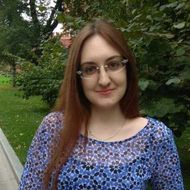PhD Research Seminar: Morphisms and agent models, graph deep learning and particle physics, Truncated Quantile Critics and overestimation bias
First talk: Property-Preserving Transformations of Elementary Net Systems Based on Morphisms
Speaker: Roman Nesterov, third-year PhD student, Faculty of Computer Science
The first part of the talk will briefly overview existing results. Formal models discovered from event logs of multi-agent systems are often complicated and unreadable.To overcome this problem, we have suggested a modular approach. A system model is composed from agent models with respect to a protocol of their communication, whereas agent models are discovered from filtered event logs of a multi-agent system. Morphisms guarantee that composition of correct agent models is correct, because they establish a formal relation between agent models and an interface model. Practical implementation of the morphism-based modular approach to process discovery is demonstrated using interaction patterns that represent typical interfaces.
The second part of the talk deals with the problem of using morphisms for correctness preservation in a composition of agent models. Direct application of morphisms by definition may be rather difficult. We consider the use of structural transformations of models, s.t. these transformations induce necessary morphisms. We propose a system of corresponding local abstraction/refinement transformations of models, s.t. one can systematically (step by step) construct correctness-preserving morphisms between agent models and interface models. Properties of the proposed transformations are also discussed. We demonstrate application of transformations to the initial problem of our study, i.e. to the construction of a correct composition of agent models discovered from filtered event logs of a multi-agent system.
Second talk: Graph Deep Learning for Recognition and Generation of Hierarchical Patterns in Particle Physics
Speaker: Vladislav Belavin , second-year PhD student, Faculty of Computer Science
In physics, there are many highly structured problems with many degrees of freedoms that are hard to solve with popular ML algorithms. We are going to discuss two such problems: recognition and generation of physical processes that are observed in the High Energy Physics domain, for example, in electromagnetic showers (EM-showers) propagation in Emulsion Cloud Chambers.
In this talk, firstly, we are going to discuss how Graph Neural Networks could be applied for the showers instances segmentation problem. We are proposing a new Graph Convolution Layer that incorporates a priori physical knowledge about EM-showers. Secondly, we are going to present a novel approach for EM-shower generation based on a cascade of deep autoregressive generative network and graph convolution network.
Third talk: Controlling Overestimation Bias with Truncated Mixture of Continuous Distributional Quantile Critics
Speaker: Alexander Grishin, second-year PhD student, Faculty of Computer Science
According to previous studies, one of the major impediments to accurate off-policy learning is the overestimation bias. During the talk, I will explore our novel way to alleviate the overestimation bias in a continuous control setting. Our method, Truncated Quantile Critics (TQC), blends three ideas: distributional representation of a critic, truncation of critics prediction, and ensembling of multiple critics. We show that all components are key for the achieved performance. Distributional representation combined with truncation allows for arbitrary granular overestimation control, and ensembling further improves the results of our method. TQC significantly outperforms the current state of the art on all environments from the continuous control benchmark suite, demonstrating 25% improvement on the most challenging Humanoid environment.
Белавин Владислав Сергеевич
Научно-учебная лаборатория методов анализа больших данных: Стажер-исследователь
Гришин Александр Юрьевич
Лаборатория компании Самсунг: Младший научный сотрудник
Нестеров Роман Александрович
Научно-учебная лаборатория процессно-ориентированных информационных систем (ПОИС): Стажер-исследователь



